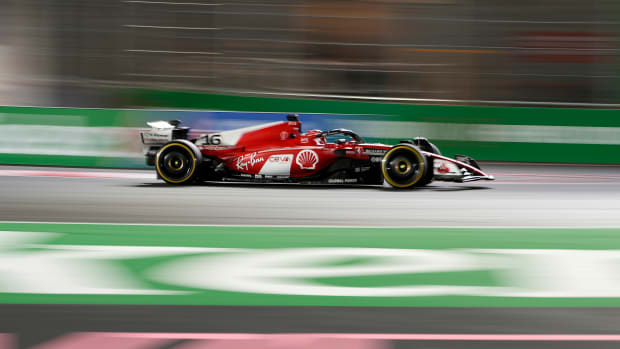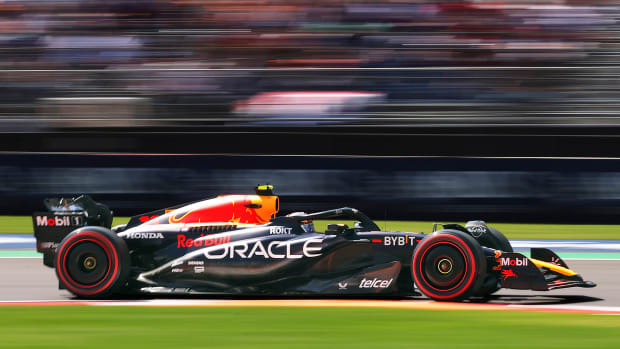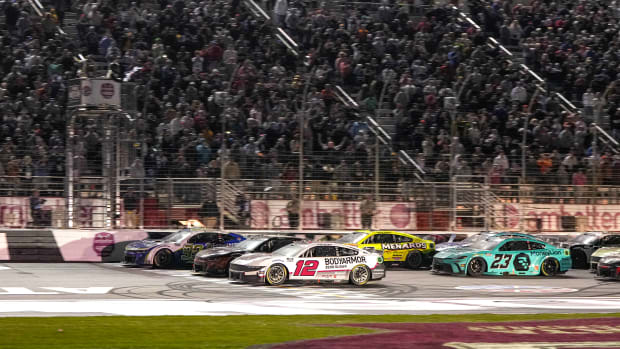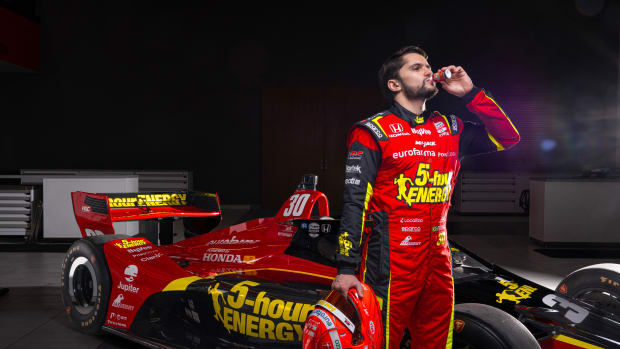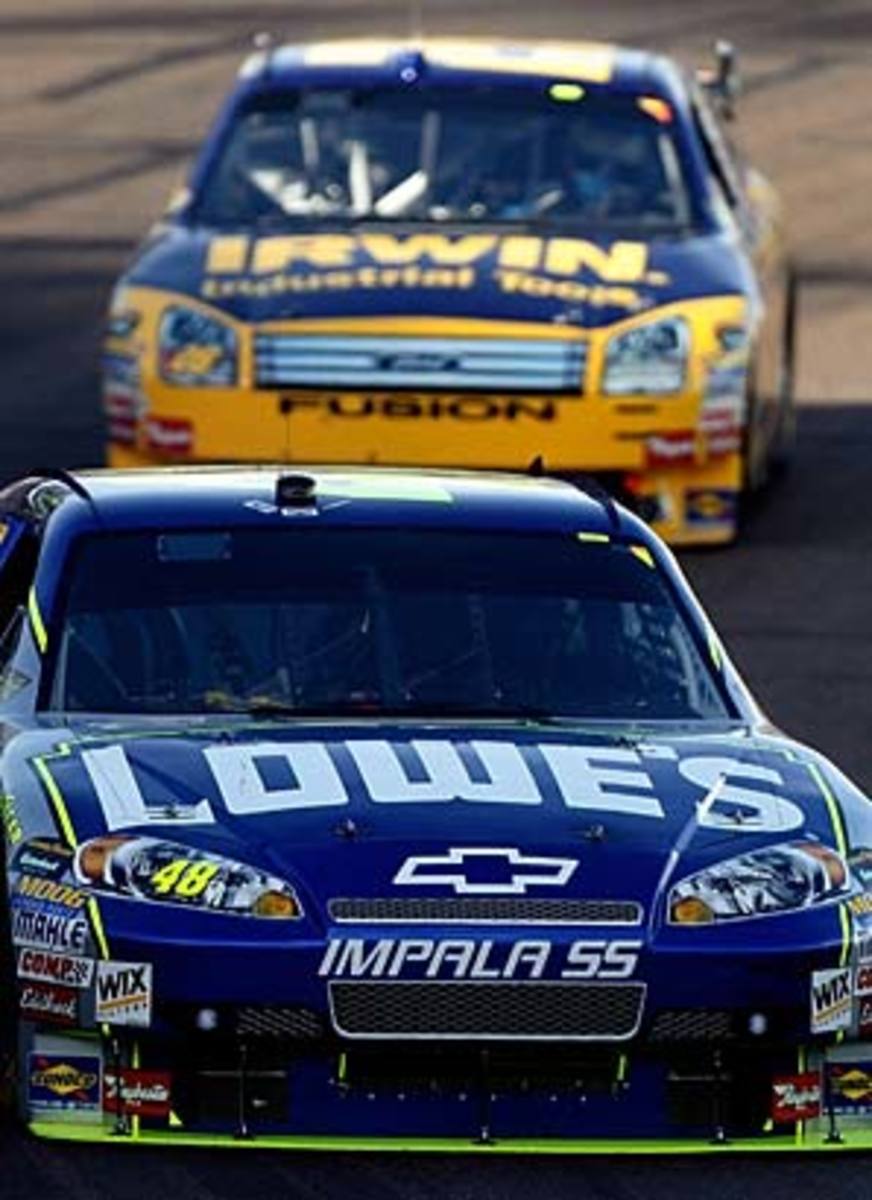
Economic downturn could have NASCAR facing a crossroads
The France family has weathered economic hardship before, manufacturer pull-outs, oil shocks, recession. And still NASCAR's founding family has managed to keep its stock car series on the race track, seed exponential growth in the 1980s and grope for national major league status.
Therein seems to lie third-generation chairman Brian France's belief that although the series his grandfather founded needs to become "leaner and meaner," these foreboding financial times, too, shall equalize. That lifeblood sponsor dollars for his series and its race teams will again be attainable, cost-cutting will not become such a regimented part of the daily business of running a sport, even though the major U.S. automakers that spend hundreds of millions to affiliate themselves with NASCAR as a marketing tool have insufficient cash to survive a year without a government bailout.
This, too, he said, shall pass. "It certainly helps as [corporations] look at things they can't afford to do in the future, usually, we're one of the last things that they don't want to continue, because they know that it works so well," France said. "Most of the companies, even in tough economic times do want to sell their products and services. So we will come out of this, and we will do our part with the rest of the sports and entertainment to weather the storm. And we've been here before with energy crisis and 9/11, and many other recessions and so on. And it's never fun. It's never easy on our teams. It's never easy on us, but we'll get through it."
That sort of thinking, said an industry analyst, is one of the reasons NASCAR is in greater peril than at any time in its 60-year history. The confluence of dependence on outside sponsor money so increasingly scarce during the current credit crunch and the possibility of a collapse among the Big 3 U.S. automakers makes this a critical time, said Peter De Lorenzo, publisher of autoextremist.com.
"I absolutely think they're too confident, because by all indications, NASCAR peaked about two and a half years ago and yet they still conduct themselves like this is a blip on the radar screen, they'll overcome this and they've seen this before, this is just a matter of time and everything will be OK," he said. "But I think this time it's different. We're at a point in American history where we've never been before, where the three domestic automobile companies are on the precipice of collapse. Saying they've dealt with this before, like Brian France said, is not really being realistic."
The major U.S. automakers are seeking a bailout package in excess of $25 billion from the federal government, with thousands of jobs in the balance, as well as a potential major impact on an already foundering economy. General Motors, whose Chevrolet teams won another Sprint Cup manufacturers title this season, reported a $2.5-billion third-quarter loss and wants to merge with DaimlerChrysler, which supports Dodge racing programs in Sprint Cup.
Ford Motor Company is $24.5 billion in debt after a $129 million quarterly loss, but NASCAR marketing manager Tim Duerr, citing brand loyalty among fans and Ford-buyers, said NASCAR continues to provide a return on the company's marketing investment, although "we are spending a lot less money than we did last year or the year before, and next year we will spend less than we did this year in racing... Today we feel we are [getting a return]. Tomorrow will be another day we have to ask ourselves that question."
Duerr said justifying an investment in NASCAR is an increasingly hard sell, a sentiment confirmed by his counterparts, including Mark Kent at GM. "Everything is a harder sell, yes," Duerr said. "When you're bleeding through the cash that the domestic automobile manufacturers are going through right now, it's always a challenge to spend any money, but we know we have to."
The disaster scenario for NASCAR would seemingly be the complete pullout of GM, Ford and Chrysler, leaving only Toyota. But DeLorenzo said the homogenization of the racing makes -- perpetuated by the new race car and the presence of hurting, but still successful Toyota -- could alleviate the sting for NASCAR.
Theoretically, teams would still be stuck with millions in obsolete equipment, however. "The introduction of COT gave NASCAR the perfect opportunity to have race cars if its manufacturers fell out," DeLorenzo said. "They'd just be NASCAR Specials. NASCAR is even pushing for common bore centers on the engines, which would eliminate the fundamental differentiation between the manufacturers of their engines. I can see that train of thought, why they went to the Car of Tomorrow.
"The thing that kind of shocks me is Brian France and others in NASCAR are openly insisting they will have full fields next year and I just don't see how that is going to happen. They haven't taken any proactive measures. I've heard they've offered to reduce the cost to manufacturers at the race track on race weekends so there are displays and stuff, but that has to be done in conjunction with the tracks themselves. I don't see NASCAR doing anything dramatically proactive to help or at least send a PR message they care. I just don't see it."
Economic woes are walloping most every aspect of racing. NASCAR is discussing ways to eliminate test sessions, which cost teams about $100,000 per car. As few as 32 cars are fully funded for 2009. An engine program for one car can cost in excess of $3 million a season. With no league structure or salary cap in place for employees, labor costs continue to rise, and the $18 million to $26 million sponsorships needed to fully fund one competitive car are increasingly difficult to find with corporate dollars being scrutinized greatly.
Dale Earnhardt Jr., the sport's most popular driver, lost a long-time sponsor for his Nationwide Series team. Organizations like once-powerful Dale Earnhardt Inc., is seeking merger opportunities, and successful outfits like Roush Fenway Racing and Hendrick Motorsports, which has won consecutive Sprint Cup titles with Jimmie Johnson, has lain off employees.
Smaller teams, meanwhile, are seeing wary sponsors migrate to larger teams like Hendrick, Roush and Joe Gibbs Racing, who use these resources to dominate the series. "It's quite dire," DeLorenzo said, "and it's dire for NASCAR because corporate America, as these contracts start expiring, corporate America is not going to be too eager to just blindly sign up for the NASCAR deal again."
"There are too many ramifications involved, too much uncertainty in the economy for that to happen," he added. "So NASCAR is in a crisis because their corporate sponsors -- the existing ones -- are going to be eying their deals when they're up and any new corporate interests are going to be -- I would expect -- severely tempered given the circumstances in the national economy."
Still, France said the current economic situation has not served to draw the line of how large NASCAR can grow, given its susceptibility to fluctuations in the national economy. "There are lots of areas that NASCAR could cut," France said. "And I'm speaking now of the sanctioning bodies that we won't. Because when this economic turn turns around, we're going to be very aggressive continuing to go after a bigger fan base, get more people interested in NASCAR. That's why we're not going to discontinue a lot of the things that are longterm benefit to the sport. Everyone can win when we get more on solid ground.
"What we've talked about the economy is two things for us; it's obviously the sponsorship, which we've talked a lot about today, and the pressure on our fans to attend the events. Those are the two critical areas. So we have got to take cost out of the system and all that. But we can't do things that don't look at attracting new fans in the future. We're based around trying to make this sport bigger and not smaller."
Bigger or smaller, it will almost assuredly be different.

